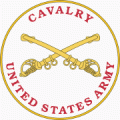First off let me say this is a great little debate. I have interacted with HTTs in Iraq quite a bit and instead of pursuing my love of Anthropology and Political Science into grad school chose to pursue my love of the M1A2 after college. My experience with HTTs and other non-targeting intel gathering is that the whole concept of "understanding" my environment is somewhat foreign to the officer corps.
120mm points out his experience in OEF with assessing the environment but I would hazard a guess that he is a rare, rare exception. In general, Tom's opinion of piss-poor implementation of non-targeting intel is spot on. I have observed time and again Bn and Bgde commanders absolutely clueless about what the HTTs do, while the HTTs are confused about what they are supposed to do and get creative or settle into an atmospherics routine.
Whatever our ideological leanings, occupations require local understanding. The more distant the cultures of occupiers from occupied the more the learning curve and the greater the distrust (WWII is a prime example).
As a maneuver leader I spent several months putting together a coherent tribal/leadership picture in my sector because the units before me never got past the key leaders whom they could pay to get things done. My anthro/poli sci background helped me ask the right question and notice the right patterns. By the end, the sector made sense. A year or two of an HTTs effort in a 7 yr occupation would have cut that learning curve and allowed me to implement effective IO in early/mid tour instead of at the end.
At the end the bigger point is the one that started this thread. The anti-intellectualism, especially against the social sciences, in the officer corps is borderline criminal. Considering we are often the de facto governors from Company and up for months and years at a time the fact that we rarely value anything that is education while thinking that training is all you need (current article series on Design is a perfect example) is one of our biggest handicaps and I am convinced it has cost lives, many of them.







Bookmarks